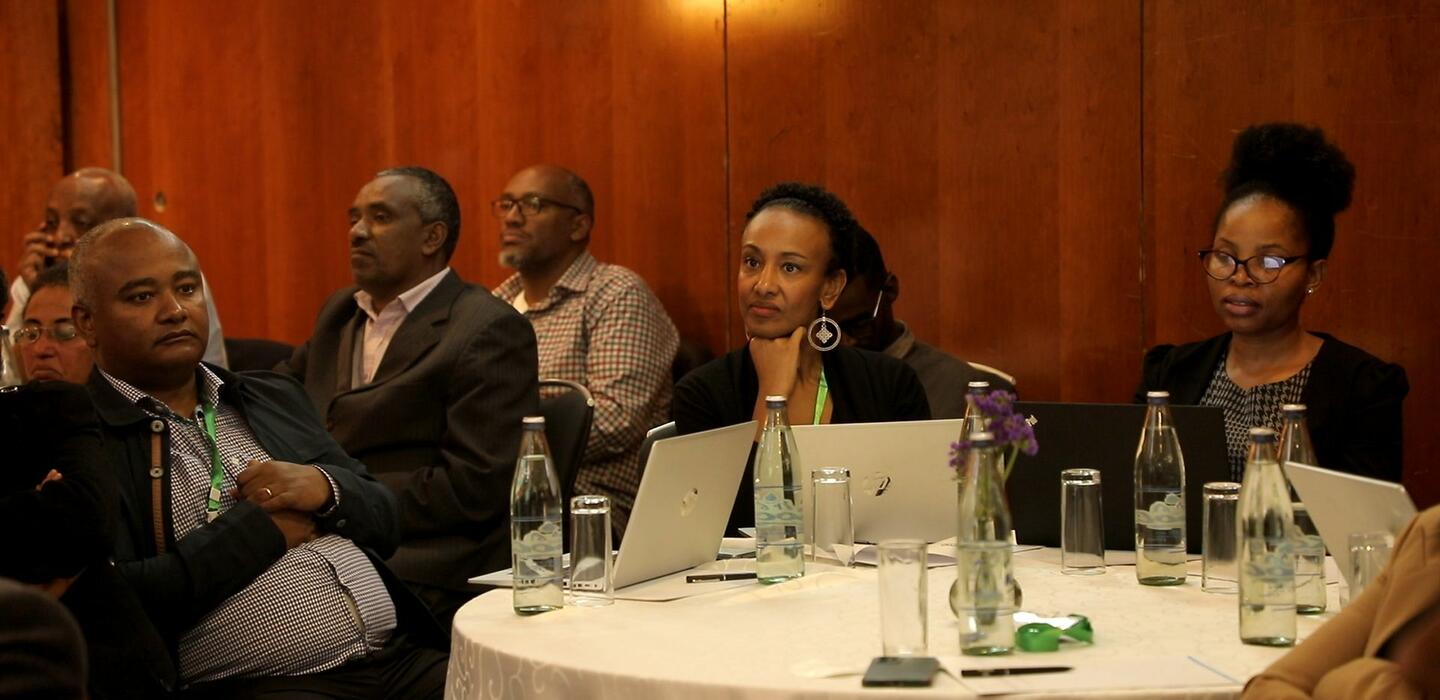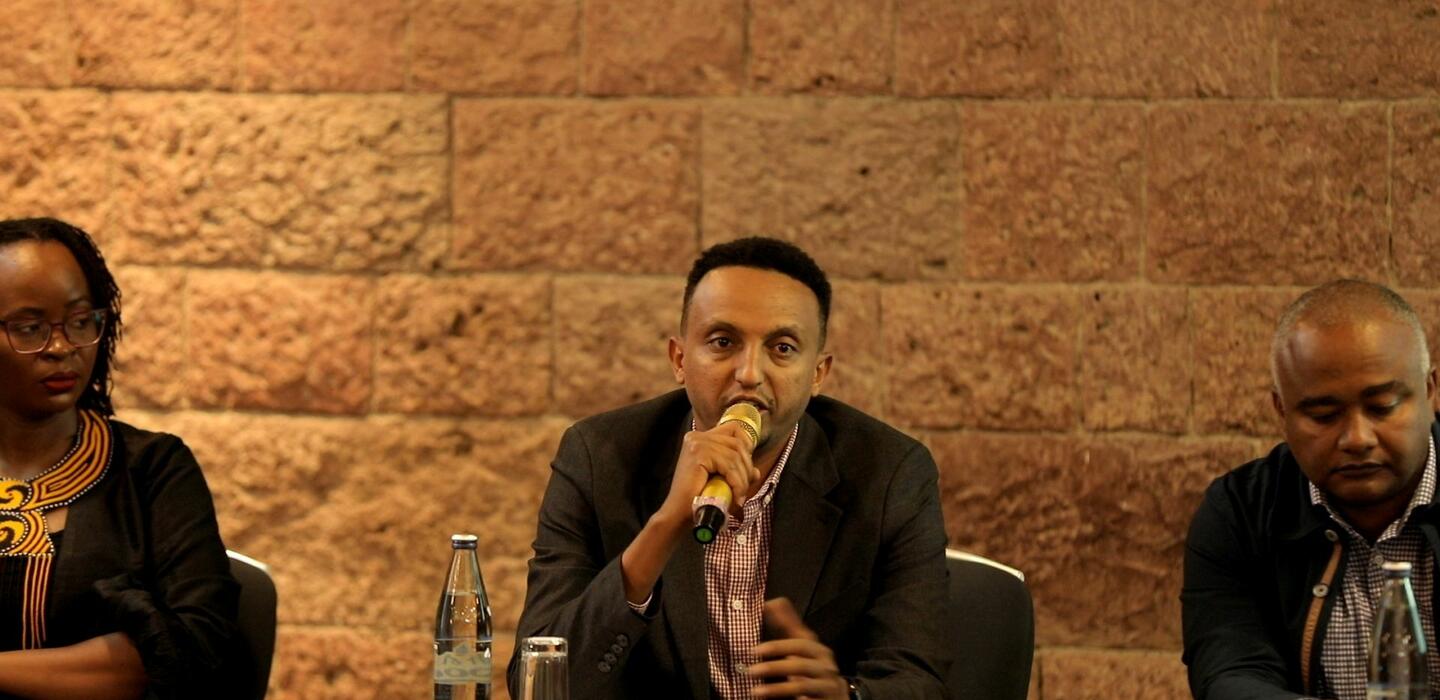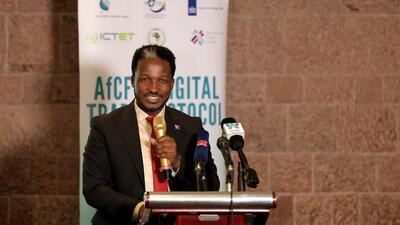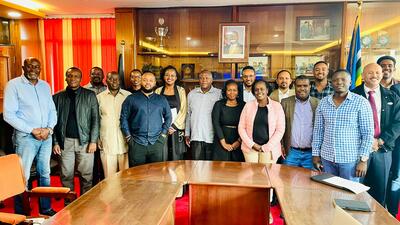
African free trade workshop an ‘eye-opening’ experience for Ethiopian business
Ethiopia’s information and communication technology trade association (ICT-ET) see the changes coming with the African Continental Free Trade Area (AfCFTA). The group held a workshop on 6 December with the International Trade Centre’s NTF V programme on how businesses in Africa’s second-most populous country can benefit from the agreement.
‘It was an eye-opener,’ said Meried Bekele, CEO of Addis Ababa-based IE Networks. ‘This agreement is happening, and we are behind the process. We have to do more to be ready for such a major economic change.’
His successful company provides IT services to other businesses. Bekele knows the benefits and risks the new market will bring.
‘For Ethiopia, there are a lot of opportunities. For example, my business has been running for more than 15 years, but we are still limited to the national market. The AfCFTA will be a huge opportunity for us to explore foreign markets and expand,’ Bekele said.
Ethiopia is a founding member of the AfCFTA which creates a single market for goods and services across Africa, with the goal of boosting intra-African trade and accelerating growth. Yet, a recent survey shows ICT companies in Ethiopia don’t fully understand how to tap into it.
Ethiopian businesses need to prepare logistics and hardware, as well as digital transactions, taxation, and payment rules, Bekele said. ‘Many companies are still in wait-and-see mode, and that time is over,’ he said.
He said businesses need a voice in policymaking on AfCFTA. ‘The private sector is going to lose otherwise: the market will be taken over by other companies who are more aggressive, more efficient,’ Bekele warned.
Yilkal Abate, president of the ICT-ET, said the workshop was an important step in galvanizing both public and private sectors.
ICT-ET shared the results of the workshop with government and businesses.
‘Things are moving faster than we anticipated when the AfCFTA started in 2018, particularly in the digital field,’ Abate noted. ‘We lack infrastructure. We need mechanisms to help companies adjust and for cross-border payment systems, data governance, consumer protections, taxation and customs duties.’
Bekele added that more must be done to integrate the businesses’ concerns as the government adapts its laws.
‘We need to develop this process together, have more discussions,’ Bekele said. ‘The AfCFTA is a path for growth for Africa and we need to use it properly so as to take full advantage.’
Estimates are that the AfCFTA could create up to 60 million jobs, Abate said, ‘and we would like some of those to be taken up by Ethiopians working in the digital space.’ Sixty percent of Ethiopia’s population is under the age of 25.
The way forward, Abate said, ‘also includes upskilling, attracting investment, scaling up, exchanging ideas and knowledge, creating cross-border partnerships, and connecting with supply chains in different areas of the world.’
Companies will also need to focus on getting internationally certified on payments systems and other processes, Abate added.
‘If companies combine capabilities, then the potential of taking advantage of the exploding growth of the outsourcing industry is multiplied. This is an industry that is projected to total $260 billion annually by 2028, and we can target sections of that,’ said Abate.
ICT-ET has created a public-private group to share best practices, expertise and analytics about the AfCFTA. It is also connecting with Kenyan business associations and planning additional workshops on e-commerce.
About the project
The Netherlands Trust Fund V (NTF) (July 2021 – June 2025) is based on a partnership between the Ministry of Foreign Affairs of The Netherlands and the International Trade Centre. The programme supports MSMEs in the digital technologies and agribusiness sectors. Its ambition is two-fold: to contribute to an inclusive and sustainable transformation of food systems, partially through digital solutions, and drive the internationalization of tech start-ups and export of IT&BPO companies in selected Sub-Saharan African countries.

















